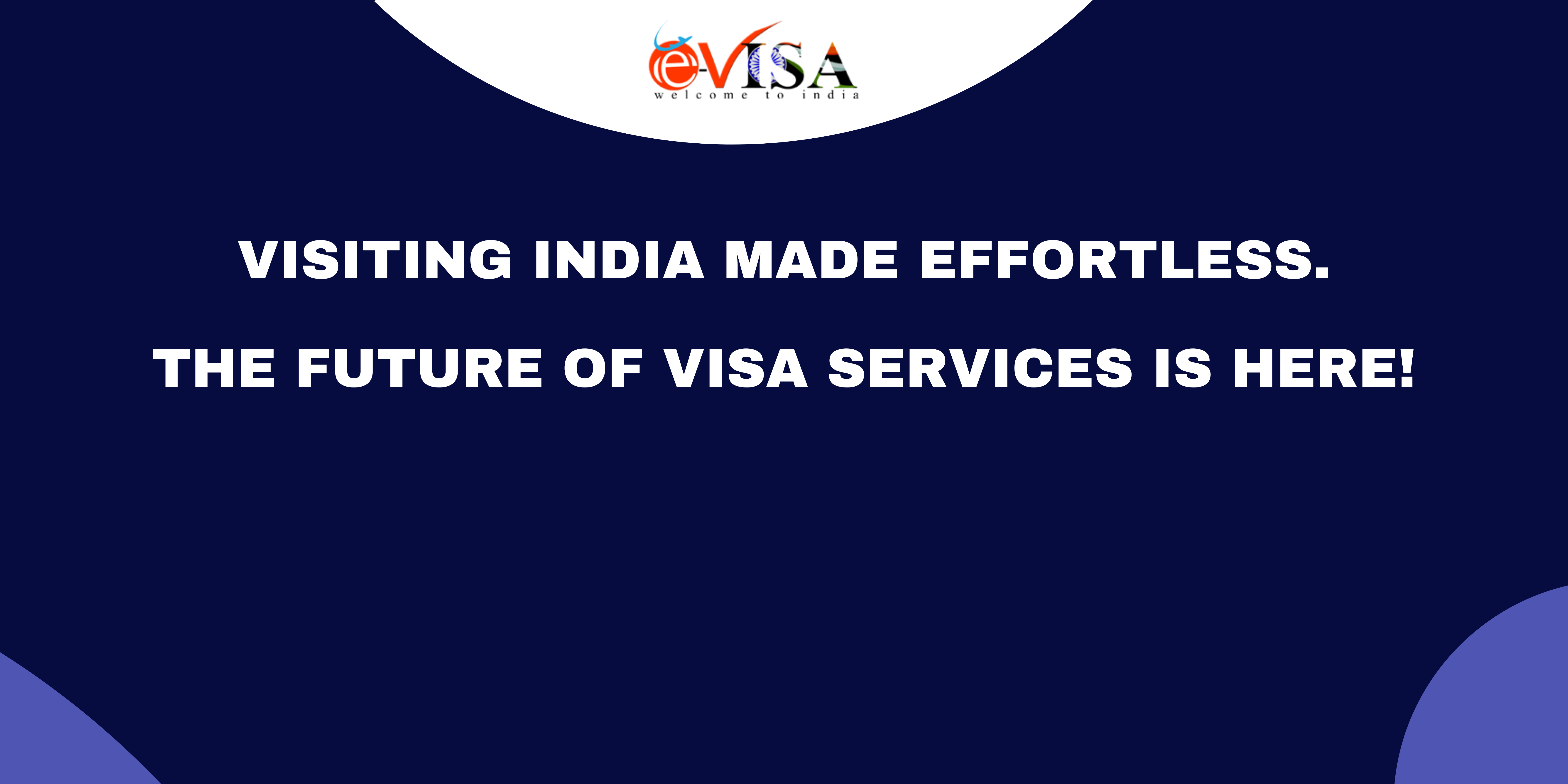Visiting India Made Effortless: The Future of Visa Services Is Here!
Travelling to India has always been an exciting prospect, with its rich history, vibrant culture, and breathtaking landscapes. However, the process of obtaining a visa has often been a cumbersome and time-consuming task. Fortunately, the future of visa services is here, promising to make visiting India effortless and hassle-free. In this article, we will explore how advancements in technology and streamlined processes are revolutionising the way visas are obtained.
Introduction
Obtaining a visa is a crucial step for international travellers planning to visit India. It grants them the necessary permission to enter and explore the country legally. Traditionally, this process involved filling out lengthy forms, submitting physical documents, and waiting for weeks to receive a visa approval. However, the future of visa services offers a more convenient and efficient approach.
The Importance of Visa Services
Visa services play a vital role in regulating and managing international travel. They ensure that travellers meet the necessary requirements, maintain security measures, and keep track of visitor statistics. Without efficient visa services, the influx of visitors can lead to logistical challenges and potential security risks. Therefore, it is essential to have a robust and streamlined system in place.
Challenges in the Current System
The current visa application process often poses various challenges for travellers. Lengthy paperwork, ambiguous guidelines, and long processing times create frustration and uncertainty. Moreover, the traditional method requires applicants to visit consulates or visa centres, which can be inconvenient, especially for individuals residing in remote areas. These challenges highlight the need for a more user-friendly and accessible visa system.
The Future of Visa Services
The future of visa services brings forth a transformation in the way travellers apply for and receive visas. Here are some key developments that will shape the future system:
Simplified Application Process
The future system aims to simplify the visa application process, making it more user-friendly and intuitive. Online portals will guide applicants through the required steps, providing clear instructions and eliminating confusion. This streamlined approach will save time and reduce errors in the application submission.
Online Visa Approval
Gone are the days of waiting anxiously for weeks to receive a visa approval. With the future system, visa approvals will be processed online, providing faster and more efficient results. The use of advanced technologies like artificial intelligence (AI) will ensure accurate assessments, enhancing the overall efficiency of the process.
Enhanced Security Measures
Security is a top priority when it comes to visa services. The future system will incorporate advanced security measures such as biometrics and enhanced identity verification. Biometric data, including fingerprints and facial recognition, will be used to establish secure traveller profiles, reducing the risk of identity fraud and unauthorised access.
Benefits of the Future
The future system of visa services brings numerous benefits for travellers. Here are some advantages that will make visiting India effortless:
Time and Cost Savings
The simplified application process and online visa approval significantly reduce the time required for obtaining a visa. Travellers no longer need to visit consulates or wait in long queues. The convenience of online applications saves both time and money, allowing visitors to focus on planning their trip rather than navigating bureaucratic procedures.
Increased Accessibility
The future system aims to make visa services more accessible to a wider range of individuals. Online portals and digital platforms make it easier for people residing in remote areas to apply for visas without the need for travel to visa centres. This inclusivity ensures that everyone has an equal opportunity to experience the wonders of India.
Streamlined Travel Experience
With the future system, the entire travel experience becomes more streamlined. From the visa application process to passing through immigration, travellers can expect a seamless journey. The reduction in paperwork and enhanced security measures contribute to a smoother and more enjoyable travel experience.
How Technology is Transforming Visa Services
Advancements in technology are driving the transformation of visa services. Here are two key technologies that are reshaping the industry:
Biometrics and AI
Biometrics, such as fingerprint and facial recognition, coupled with artificial intelligence, are revolutionising the visa application and verification process. These technologies enhance security by accurately identifying individuals and verifying their identities. By eliminating the reliance on physical documents, the system becomes more efficient and less prone to fraud.
Blockchain Technology
Blockchain technology offers a secure and transparent way to manage visa-related information. By utilising a decentralised ledger system, visa applications, approvals, and travel records can be securely stored and accessed by authorised parties. This ensures data integrity and reduces the risk of tampering or unauthorised access.
Future Innovations in Visa Services
The future of visa services holds even more exciting possibilities. Here are some innovations that may shape the way we obtain visas:
Virtual Reality Travel
Virtual reality (VR) technology has the potential to transform the visa application process. Imagine being able to explore popular Indian tourist destinations virtually, allowing travellers to immerse themselves in the culture and beauty of the country before even setting foot in it. VR experiences can provide valuable insights and enhance the decision-making process for travellers.
Digital Passport Integration
Digital passports or e-passports are emerging as a secure and convenient alternative to traditional passports. These passports contain embedded electronic chips that store traveller information, making it easier for border control authorities to verify identities and facilitate smoother immigration processes. Integration with visa services would further streamline the travel experience.
Smart Visa Systems
Smart visa systems leverage data analytics and machine learning algorithms to assess visa applications efficiently. These systems can analyse various factors such as travel history, purpose of visit, and risk assessment to make informed decisions. By automating the approval process, smart visa systems reduce human bias and improve the overall efficiency of visa services.
Conclusion
The future of visa services is set to revolutionise the way we obtain visas, making travelling to India effortless and hassle-free. With simplified application processes, online approvals, enhanced security measures, and technological advancements, the system promises a seamless travel experience. By embracing innovation, India is paving the way for a future where visa services are accessible, efficient, and secure.




